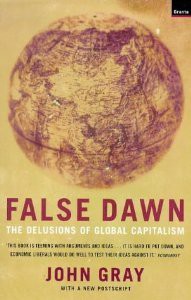Nevermind the human interaction
I read because each reading has the ability to shift the angle of my worldview, and this is in turn feeds the will, the desire to live. This is my crack and as a result I am a ravenous and indiscriminate reader.
Currently reading
The Permaculture Way

I haven't finished reading this yet, but here it goes.
I don't care what Bill Graham claims at the beginning of the book, permaculture is a religion/ideology/sect. I've suffered through the spiritualistic voice of the author (using words such as 'visionary') and beaming optimism because the principles this book introduces are very much ones that I either: a) already adopt or b) want to adopt. Them being, roughly speaking:
1) Less work = better life (amen to that).
2) It's ridiculous that we pay the least to people doing the jobs we need the most (to which I would add that it's ridiculous that we pay the least for the jobs that the fewest people want).
3) Our inputs should roughly equal our outputs.
4) Non-intervention (doing nothing) should be the first response when we consider a problem (hmmm, not sure if it translates to human life so successfully).
5) Diversity of skills = good, even if you are not that great in any of them (mos def the point I've been driving home to everyone for years) . Skillshare great too.
6) Everything should be aimed at multifunctionality to minimise work.
There are others. Permaculturists observe the nature, take clues, then use them to optimise the yield of their crop. The method is also the one that is the least energy consuming (including the energy spent in labour). Then they use these principles of design to other areas of life, as we are a part of nature. The result is shitloads of zen and very good food.
 2
2
 1
1
I read Brighton Rock by Graham Greene
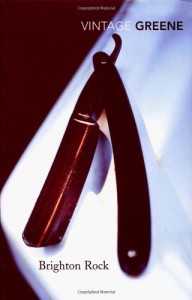
I don't know if it's an English thing, but everyone seemed to have read this book I had never even heard of. Well, now I've done it too, and it's my first Graham Greene. Score!
One thing that I like about Brighton Rock is its excellent sense of place. Graham Greene draws a very vivid image of Brighton that is so different from the Brighton of today; and for someone who knows the place, but not the place in that time, it leaves an eerie feeling, like when you realise that your childhood memories are all wrong. An important part of Greene's Brighton are the characters (no shit, Sherlock), who belong to this bizarre different time as much as the setting in which they operate. And they are real, these are none of your stuffy folk with inspired musings - these guys drink pints, eat out of tins, ask strangers for spare change. Their enviroment contains plastic flowers in small cafes serving sausage rolls, coin operated machines that tell your fortune, racecourses where punters are hunting for a tip-off. This environment does not come in a stretching landscape view, with the observer's commentary and interesting trivia, it just is there, somehow known and not described, and the characters inhabit it.
Speech is another good one. 'A pony' means 25 quid, a 'polony' is a girl, and I had no idea what the hell Brighton Rock was until I finished the book and went searching on the internet (then I said 'oh THAT'). It's not just the vocabulary. Some exchanges are an awesome example of banter:
"'Always tell a sporting woman. Ask you round the corner to split a bottle of fizz if those beggars hadn't taken the last fiver I cam out with. Wanted to go and lay a couple. Have to go home first. Odds'll go down while I'm doing it. You'll see. You couldn't oblige me, I suppose? Two quid, Charlie Moyne'
'Here', Ida said, 'you can have a quid; now run along'"
I think you might be kind of convinced by now. The only thing I have to add was that the book's take on morality is very versatile - you can read it in whichever way suits you. It will be refreshing if your moral code exists independently from your society's social values/the law, but either way there's plenty to challenge your beliefs and to test your boundaries. Some good material for lengthy discussions with yourself.
That is all; I am knackered after work and can say no more. It's a good read.
 1
1
I, Robot. Nevermind the movie, here is the book.
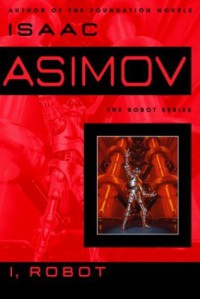
Whenever I am faced with any book by Asimov, I can never quite get out of my head the line from a song by Adam Green: 'Smoke crack like Isaac Asimov/Faux black delayed reaction of/Sure enough she's snuggling up to me/I've got to feed them facts'. Layering culture, sweet, awkward.
The best thing about this book is that it is written in a simple way, although it does not necessarily talk about simple things. In fact, as through the short story sequence the humans build more and more complex robots, the discussion of the human relationship with technology gets more intense.
Except it is not a 'discussion'. It does not give you a headache, it does not demand you to strain your intellectual muscles. It talks about important things without making them grand. All with a veneer of a dusty melancholy of good, old science fiction.
Plotwise, it contains humans who build more and more advanced robots. At the same time there is growing concern about A.I. and about robots possibly transgressing their boundaries to become their own masters. For characters, you have two engineers and a 'robot psychologist' (which is a less wanky concept than it sounds), who seems to prefer robots to humans. The other characters are robots.
On the downside, the book starts somewhat slowly, with a robot that is a rather simple machine, playing a part in a simple story. But it picks up speed right after, and on it goes, and then you've read the whole thing in two days. Two days that you can totally afford to spare.
 2
2
Achievement
Some fine tuning of the blogs followed, and I think that naked men have finally stopped falling out of my Dashboard.
Phew!
Sort of review - Far from the Madding Crowd

The book is nearing the end, and although I generally try to avoid expressing an opinion before I finish reading, I have a few thoughts I'd like to share.
It is interesting to read about these country practices that I know nothing about, like the work in the fields, the washing of the sheep, shearing, etc. Hardy is into this sage overview of life and work cycles in the countryside, and how they correspond to seasons. Just the sort of thing to excite the men and women who are responsible for the high school curriculum. Oh the merchants of misery! Still, that part was enjoyable to me, although it would not have been if it was forced onto me at the tender age of 14.
Some of the nature descriptions are excellent. You can feel the melancholy of a rainy day and the tension before the storm quite clearly. Then, some are verbose and clumsy, and I would forget what I am reading halfway through.
The plot moves along like an Argentinian telenovella. On the one hand, it doesn't get unbearably boring - there are enough dead babies, broken engagements, lost virginities and broken hearts to keep you on your toes. On the other hand, you want to smack the characters, hard.
Now, to the two things I really hold against Hardy. Firstly, the thinly veiled sexism, that never (hmm) makes itself explicit, but is felt strongly throughout the book. I don't care what times he lived in. Secondly, the writerliness and erudition that uncomfortably squishes itself into descriptions of an uncomplicated country life. One of the more odious expressions of this is the following: "At these words there arose from Bathsheba's lips a long, low cry of measureless despair and indignation, such a wail of anguish as had never before been heard within those old-inhabited walls. It was the [GREEK word meaning "it is finished"] of her union with Troy". In the book you actually have the benefit of seeing the Greek word printed in Greek.
So, in short, the book is interesting in its skillful descriptions of a life so unfamiliar to a city dweller today, but the plot, the voice and the style don't exctly leave you gagging for more. I might never read another Hardy again. As my mechanic says, "once is a mishap, twice is a coincidence, but the third time, come on".
Paul Eadie on Far from the Madding Crowd Pt3

Chapters 8-11
Hardy's Gabriel Oak meets other men working at Bathsheba's farm. Eady: "Meet the family"
The maltster is reminiscing. Eady: "They all respected him"
Gabriel plays his flute for the men. "They are all very pleasant and jolly"
Gabriel decides not to let Bathsheba see him playing the flute as it contorts his face. "he still cares for her still tries to look his best around her"
Fanny disappears and the villagers are concerned. "Shes only been gone 2 hours"
Oak thinks of Bathsheba. "he knows he has got no chance"
Bathsheba meets Mr. Boldwood. "Bath Meets Boldhead"
Hardy describes how Mr. Boldwood took care of Fanny. "very kind chap"
Bathsheba gives money to the workers. "generous soft hearted"
Oak is surprised at the "remarkable coolness" (Hardy) of Bathsheba. "she has matured, used to be wild" (Eady)
Description of Bathsheba managing the farm. "Bath Strong Char - wish to succeed"
Fanny runs away to Sergeant Troy. "is quite like Bath. If she wants to do something, she will"
Fanny visits Troy at his barracks. "Troy spurns his fanny"
A find
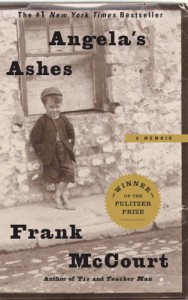
I found Angela's Ashes by Frank McCourt yesterday. Which is just as well, because it's pissing down today and the book would be no more had I or someone else not come across it.
Now it is here, looking at me. It boasts a Pulitzer, but I am not taken in yet. I will wait.
Recommendation
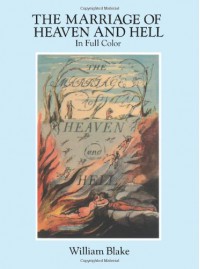
Today I was recommended The Marriage of Heaven and Hell by William Blake.
I will come back to this, I feel. And it has to be in full colour. No half-measures here.
When Hardy's lamb dies, this is what he does

Apparently, when an ewe's lamb dies, this is what you do:
1. Skin the dead lamb
2. Take a lamb from an ewe who has more than one
3. DRESS THE LIVING LAMB IN THE DEAD LAMB'S SKIN
4. GIVE TO THE MOTHER SHEEP WHO LOST HER BABY SOMEONE ELSE'S BABY DRESSED IN HER DEAD BABY'S SKIN
5. SHE WILL NOT LIKE IT, SO PUT THEM TOGETHER IN A SMALL ENCLOSURE UNTIL SHE CHANGES HER MIND
Yes, it deserves the irritant of capitalization. In the end the sheep probably accepts this fake baby as hers purely because she has gone insane with grief and horror. Success!!?
Paul Eadie on Far from the Madding Crowd Pt2

Chapters 1-7.
Farmer Oak is described as "a man whose moral colour was a kind of salt-and-pepper mixture". Eadie writes "Hmmmm".
Hardy describes Bathsheba as first seen by Oak. Eadie: "thinks/knows she's perfect!". And then "wants plenty of men".
Oak describes Bathsheba as vain. Eadie: "a bit of an truth yet insult".
Oak brings a new-born lamb into his hut. Eadie: "what a hero"
Oak tells the time by looking at the stars". Eadie: "very good"
Bathsheba says "I wish we were rich enough to pay a man to do these things". Eadie: "Bath is rather poor. Poss looking for rich bloke"
Bathsheba meets Oak: "It was with some surprise that she saw Gabriel's face rising like a moon behind the hedge". Eadie: "not the best entrance".
Oak talks to Bathsheba. Eadie: "oh no you can tell oak is not a smooth talker", and then "is obviously not expert with females".
Bathsheba gives her hand to Oak. Eadie: "definalty leading him on".
Oak: "I've brought a lamb for Miss Everdene. I thought she might like one to rear; girls do". Eadie: "a bit sexist".
Bathsheba runs after Oak. Eadie "may he still have a chance?"
The next two pages have "still cocking it up" written at the top. At the end of the chapter, Eadie: "he finally gets the message and leaves promising not to ask her again".
Oak's sheep die. Eadie: "a perfect end to the week from HELL!"
Farmers don't hire Oak as a shepherd after they hear he was a farmer himself. Eadie: "this put farmer off - he messed up his fort".
Oak extinguishes a fire. Eadie: "brave oak jumps over gate"; "not scared at all"; "Oak being very brave and leading".
Oak meets the owner of the farm, who turns out to be Bathsheba. Eadie: "what a lovely coinsidence".
Oak offers money to a poor girl that he meets: "Perhaps you would accept this trifle from me". Eadie: "Oak gives away some home baking".
Paul Eadie of 10B introduces Far from the Madding Crowd

As I begin to read this book by Hardy (will I love it? Like it? Or will I have the same allergic reaction as I did to his the Well-Beloved?! oh the suspense), I would like to say that I will be posting regular updates as I read. I will not be offering updates on my progress, but rather the comments of Paul Eadie, 10B (is this a school year/class?). Whoever he is, he has annotated the book heavily. I either found this book in a squat, in a skip, at a charity shop, or perhaps just lying on the pavement in a pile of dirty clothes, broken luggage and shattered cds. Therefore I have no connection with Paul, nor do I have any idea as to who he is.
For starters, I would like to tell you that the side of the book has a lot of smilie faces (like this: =)) drawn on it. The first page says 'Paul Eadie 10B' and 'You're a dirty beggar and you like to munch on fluffy bunnies'.
Further, there is a note saying 'Good luck in your exam Paul. Love, Lauren'.
And so it begins...
How to feel in love without an object

I first heard of this book when during my time in Istanbul I was taken to the Museum of Innocence, after which the book is named. By the time we had to leave (it was an organised excursion), I had only managed to see around five exhibits and I had a lump in my throat. I was still working on it on my return flight.
What I really like about this love story is how it recognises the importance of the idea of time to love. Those who have experienced love will be able to point out how it is the stretching and the shortening of time that defines it so well, and The Museum of Innocence repeatedly insists that the only way that love can be seen in time is in moments. To some extent this reminds me of Love in the Time of Cholera, which also relied on time to express the idea of love. Pamuk's character starts collecting objects and describing places (the novel is set in Istanbul) to talk about his love when it sees no action - after all, Kemal spends around eight years visiting a flat to dine and then watch television in the company of his beloved, her husband and her parents. This love extends to his collection and to his city, when the story stops being about Kemal and Fusun and makes you realise - or remember - the comforting capability of human nature.
It's a good book to remember when you next are tempted to feel alone. You know that Alan Bennett quote from the Waterstone's billboards - "The best moments in reading are when you come across something – a thought, a feeling, a way of looking at things – which you had thought special and particular to you. And now, here it is, set down by someone else, a person you have never met, someone even who is long dead. And it is as if a hand has come out, and taken yours." Ah, this is it.
By the way, I was baffled by the Guardian quote on the front, saying 'An enthralling, immensely enjoyable piece of storytelling'. It is not strictly speaking incorrect, but 'enthralling', 'immensely enjoyable' and 'storytelling' are not the words that come to mind after reading this book.
Trials and tribulations of the twopenny gentility
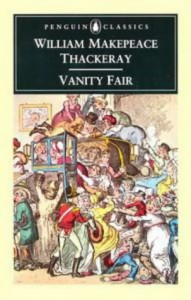
To start with, the language is great. I don't know how I have managed to survive without such phrases as the 'female inquisition' and 'twopenny gentility' in my vocabulary. Well, they are there now, thanks to Thackeray.
Another bonus is a good mixture of detached sarcasm and involved sentimentality, which is what the author aimed for himself (you'll find that out from the introduction, if you read those things). Which means that the story is funny, and when it is not funny, it has you fussing and worrying about the characters.
On the downside, there is some ancient didacticism (also alluded to in the introduction) which is a tad annoying. For example, Becky comes across as a very likeable character in the first scene (where she chucks the Johnson's Dictionary at a headmistress's assistant), when the narrator's tutting comes across as, well, square.
I know I will be hissed at for saying this, but Vanity Fair reminds me of Austen's writing. Now please remember that Austen, so badly sentimentalized nowadays, actually had a wicked sense of humour which was present in her novels. Detached sarcasm and involved sentimentality! Thackeray is (wants to be?) more on the sarcastic side, mind you.
And here goes the piecemeal review, as I am at work and need to get back to, uh, work.
Istanbul is great although it is not the only place in the world where people like to watch a house burn

I haven't read any of Pamuk's fiction, but I intend to after having read this book. It is great, although I would not recommend it to people with a short attention span - you will be nodding off. I'll go into more detail below.
- The language is rich and paints a detailed picture - in fact, I found that the photographs that illustrate the book, although beautiful, were not needed - your imagination and the text would definitely be enough. On the downside, some of the language is verbose and clumsy - sometimes it reads like those memoirs from a different century, and you almost expect to be directly addressed as a 'most distinguished reader' (or the like).
- I was slightly irritated by the patriotic tendency to isolate global features of humankind as belonging to Istanbul and its inhabitants alone. It's like people who come to London or Paris, get lost in the stampede at the tourist sites, eat rubbish overpriced food, spend no time or effort in finding out anything else about the place, then go back and talk about how special their hometown is and how disappointing the rest of the world is. On the up side, the fact that this 'spirit of Istanbul' (melancholy/huzun, poverty, romanticising of the past, etc.) is not a distinctive phenomenon, means that you can read this book and identify with it, recognise yourself and your environment in it, and actually like it a lot. It is not necessary to agree with Pamuk that Istanbullus are the only people who live near a body of water AND choose to look at it through their window or who are interested in watching a fire.
- Pamuk refers to a few artists (painters, writers) again and again, which some people will find tedious, but personally I thought it was helpful. If, like me, you will not have heard of most of them (read: the Turkish ones), it is helpful that he goes into this detail because it does not leave you feeling inadequate and instead leaves you feeling like you have learned something, both about these men and about the city. It also leaves an impression that their work is important in understanding what Pamuk wants to say about Istanbul, and that he is not merely name-dropping.
- I liked the idea of Istanbul as a meeting place of the west and the east - it's not a new idea, but it's explored really beautifully in this book. What I find dubious is that this meeting of the west and the east is supposed to have formed a uniform, shared character of the inhabitants of Istanbul. However, when Pamuk stops generalising to talk about individual 'Istanbullus', it is quite powerful. Some excellent memories from his household here (for example, how dining rooms were left unused in the households that saw themselves as western, with the family eating sitting cross-legged on a carpet in a different room).





